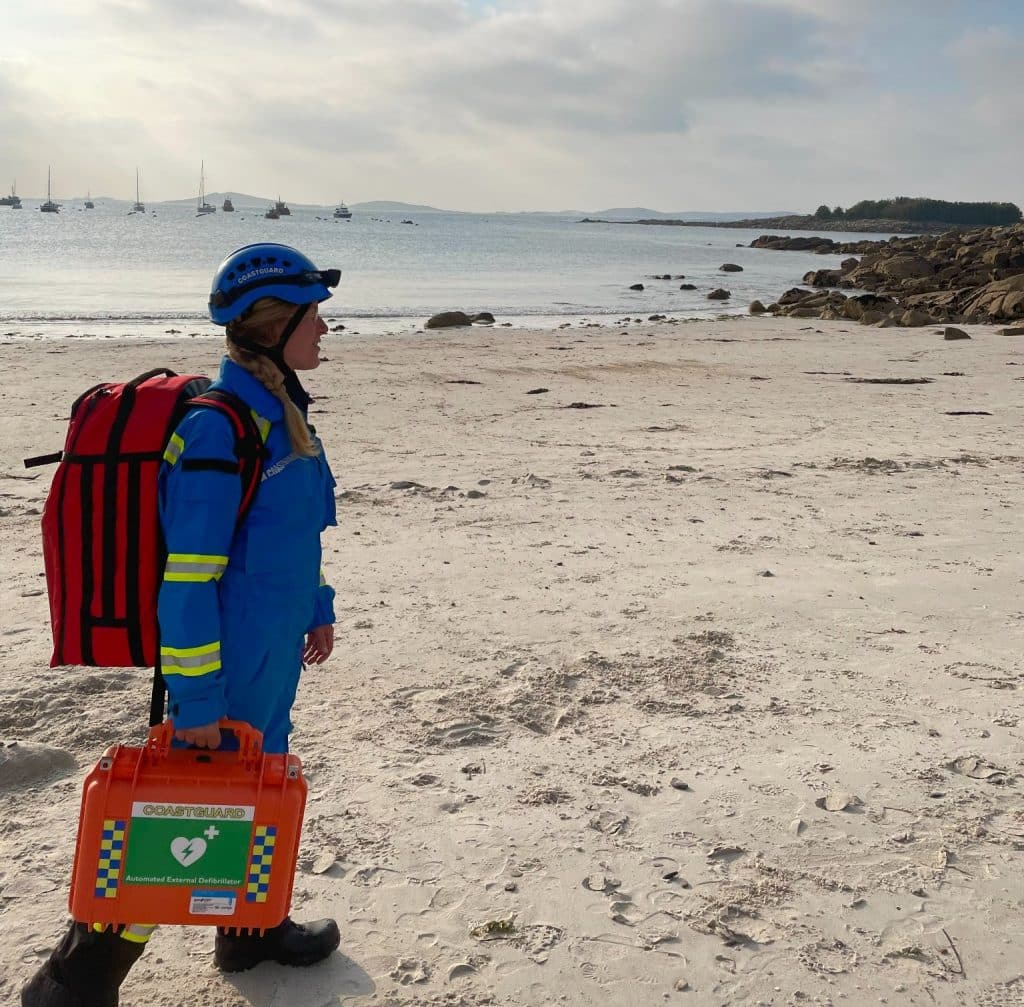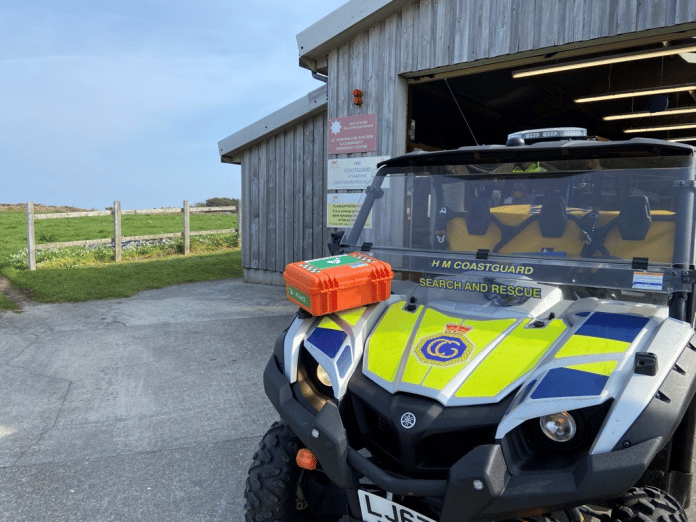Lifesaving defibrillators are being put in some of the most remote UK communities thanks to HM Coastguard.
Automatic External Defibrillators (AEDs) have been put in HM Coastguard’s vehicles and in its stations, creating the largest geographical spread of all emergency services.
It means extra lifesaving capability at emergencies and helps to fill some critical ‘gaps’ to bring access to AEDs for people in the UK’s most remote communities.
Nearly 500 AEDs are now available in Her Majesty’s Coastguard’s emergency response and support vehicles, coastal officer and divisional commander vehicles and all its rescue coordination centres. And AEDs are also in all other buildings belonging to the Maritime and Coastguard Agency, including marine offices around the UK, adding extra protection for employees in the event of heart-related ill health at work.

Additional help in local communities
Dr Paddy Morgan, HM Coastguard’s Medical Director said that the introduction of AEDs can help people in local communities, as well as for coastal incidents:
“Minutes really do matter in the event of a cardiac arrest and having rapid access to an AED can make a significant difference to the chances of someone going home to their loved one or not. Working with our partners in the other emergency services, we have become an integral part of the network that reduces the time to effective defibrillation for people in our communities in an emergency,” he said.
Chief Coastguard of Her Majesty’s Coastguard, Peter Mizen said:
“For over 200 years, our aim has been to keep people safe at the coast and out at sea and looking after those around us as well as our own people is intrinsic to that.
“As the national maritime emergency service, we have a wider role to play as part of local communities, often in remote and rural locations where we provide essential support for our emergency services partners. By carrying them in our vehicles, it also means they are immediately on hand for our teams who may come across emergencies on their regular safety patrols and when we attend public events,” he said.





















